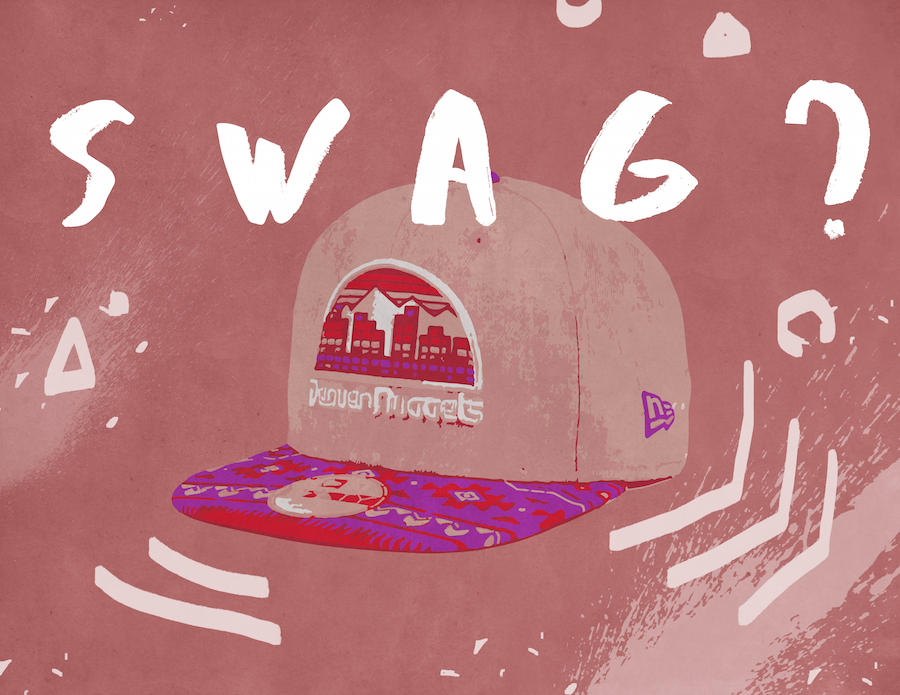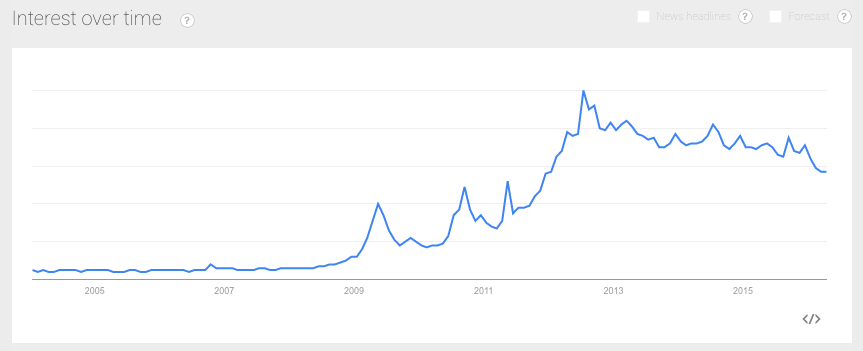An exploration and explication of #swag
April 13, 2016
 Kaitlin Hsu
Kaitlin Hsu
As rapper George Watsky once stated, “I thought swag was dead way before this/Then Bieber used ‘swag’ in a chorus.” I too, thought swag was dead, but nonetheless it arises from the ashes like the metaphorical phoenix donning a backwards snapback.
Many possess a certain disdain for the word “swag,” but I have yet to develop that same animosity. I colored myself befuddled in this whirlwind hashtag society- was I the only person asking, “What is swag?” Is it related to the root of the word, “swagger?” Does it sprawl itself across bro-tanks? Does it hang on the belt loops of too-loose worn-looking jeans- and if so, is that why they sag so incredibly low? I didn’t know what to believe. So, I embarked upon a quest to discover the true meaning of #swag.
So where do I stand with “swag?”
There is a myriad of phrases on Urban Dictionary attempting to define the word swag, ranging from “an approximation or educated guess” to style to the definition I was truly searching for – “the appearance of being very cool, smooth, looking good, dressing nice and often having lots of money to flash which draws the attention of others. A way of carrying yourself like a star.”
The use of the word swag is versatile- as an adjective; it can mean “cool” or “good.” Or quite simply, “a lot of things.” The definition recognized by the New Oxford American Dictionary describes swag as “products given away free, typically for promotional purposes.” More modern, informal meanings range from objects stolen by a burglar to marijuana.
But my quest was not over. I had yet to discover the skyscraper cities of hip hop lyrics, specifically Jay-Z’s “All I Need.”
From his sixth studio album, “The Blue Print,” “swag” saw a modern resurgence through lyrics. The word has been frequently used in various hip hop songs as a part of braggadocio-style rapping, or rapping characterized by boasting one’s skills or prowess.
Hip hop and rap music’s close relationship with “swag” persisted throughout the years. Pharrell’s 2006 track, “Swagger International,” and T.I.’s “Swagga Like Us” featured king of swag, Jay-Z.
“Swag” has swept the nation. American rapper Sean “P. Diddy” Combs changed his name to “Swag” for one week. Shortly after, Gawker published an article titled “The Old Person’s Guide to ‘Swag,’” inspired by the Sean Combs announcement.
On May 26, 2011, The Atlantic published an article titled “Is ‘Swag’ Here to Stay?” which like me questioned the longevity of the term.
The word “swag” has definitely experienced a significant spike in references, the Google Search Trend report speaks for itself.
Another question (actually, a few) arise: What? How? When? Where?
So let’s turn to the “swag-curve model,” a model referenced in the EngLang Blog, a blog for A-Level English Language students and teachers from South London and Essex.
According to the post, slang spreads in a variety of ways. The newly birthed slang term will appear in the language, and it will spread. Depending on the flexibility, and the impact and the influence of the original creators, it will spread once more.
Charles-James Bailey’s “wave” and “s-curve” models represent the spread over time, though usually used to measure the differences in pronunciation as they spread across a country.
Following Bailey’s model, “swag” will come and go. But let us not forget the ever-present slang term “cool.”
There is no more “bling bling” (originated by Lil Wayne and his crew) and there is no more “tubular” (‘80s and ‘90s,) but “cool” has stayed with society no matter which way its linguistic head turns.
In The Atlantic article, Geoffrey Nunberg, a linguist at UC Berkeley is quoted for disagreeing on swag’s longevity. “Cool is an anomaly, the very rare slang term that has survived a pattern of cultural transferal, making its way from the 1920’s jazz era to the ‘50s beat generation through writers like Norman Mailer and Chandler Brossard, to ‘60s-era hippies, from surfer subculture to nerspeak to rap, and on and on.”
I stand by the research, and the research will stand by me. Slang will come and go, and swag is not here to stay. But until then, I’ll laugh with the others. Quoth the Bieber, “Swag, swag, swag on you.”


















![“[Building nerf blasters] became this outlet of creativity for me that hasn't been matched by anything else. The process [of] making a build complete to your desire is such a painstakingly difficult process, but I've had to learn from [the skills needed from] soldering to proper painting. There's so many different options for everything, if you think about it, it exists. The best part is [that] if it doesn't exist, you can build it yourself," Ishaan Parate said.](https://harkeraquila.com/wp-content/uploads/2022/08/DSC_8149-900x604.jpg)




![“When I came into high school, I was ready to be a follower. But DECA was a game changer for me. It helped me overcome my fear of public speaking, and it's played such a major role in who I've become today. To be able to successfully lead a chapter of 150 students, an officer team and be one of the upperclassmen I once really admired is something I'm [really] proud of,” Anvitha Tummala ('21) said.](https://harkeraquila.com/wp-content/uploads/2021/07/Screen-Shot-2021-07-25-at-9.50.05-AM-900x594.png)







![“I think getting up in the morning and having a sense of purpose [is exciting]. I think without a certain amount of drive, life is kind of obsolete and mundane, and I think having that every single day is what makes each day unique and kind of makes life exciting,” Neymika Jain (12) said.](https://harkeraquila.com/wp-content/uploads/2017/06/Screen-Shot-2017-06-03-at-4.54.16-PM.png)








![“My slogan is ‘slow feet, don’t eat, and I’m hungry.’ You need to run fast to get where you are–you aren't going to get those championships if you aren't fast,” Angel Cervantes (12) said. “I want to do well in school on my tests and in track and win championships for my team. I live by that, [and] I can do that anywhere: in the classroom or on the field.”](https://harkeraquila.com/wp-content/uploads/2018/06/DSC5146-900x601.jpg)
![“[Volleyball has] taught me how to fall correctly, and another thing it taught is that you don’t have to be the best at something to be good at it. If you just hit the ball in a smart way, then it still scores points and you’re good at it. You could be a background player and still make a much bigger impact on the team than you would think,” Anya Gert (’20) said.](https://harkeraquila.com/wp-content/uploads/2020/06/AnnaGert_JinTuan_HoHPhotoEdited-600x900.jpeg)

![“I'm not nearly there yet, but [my confidence has] definitely been getting better since I was pretty shy and timid coming into Harker my freshman year. I know that there's a lot of people that are really confident in what they do, and I really admire them. Everyone's so driven and that has really pushed me to kind of try to find my own place in high school and be more confident,” Alyssa Huang (’20) said.](https://harkeraquila.com/wp-content/uploads/2020/06/AlyssaHuang_EmilyChen_HoHPhoto-900x749.jpeg)








